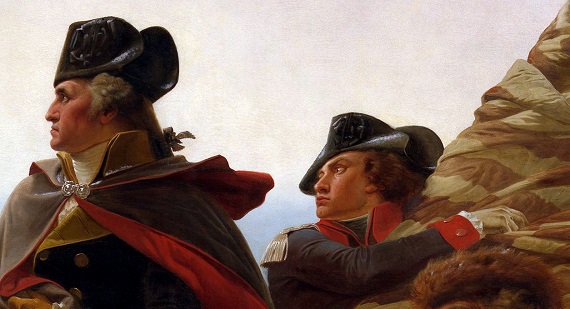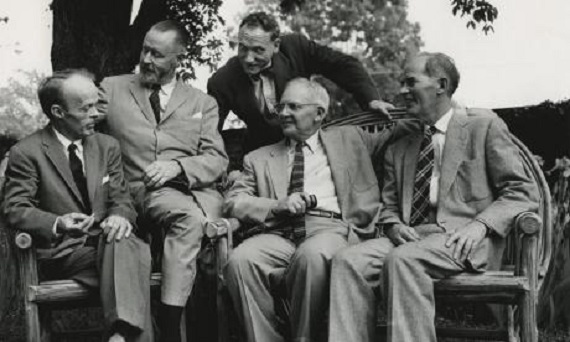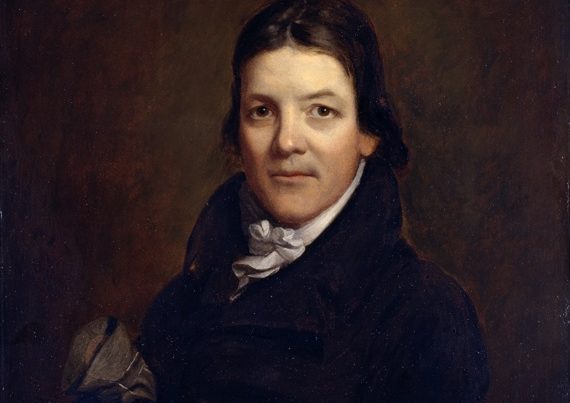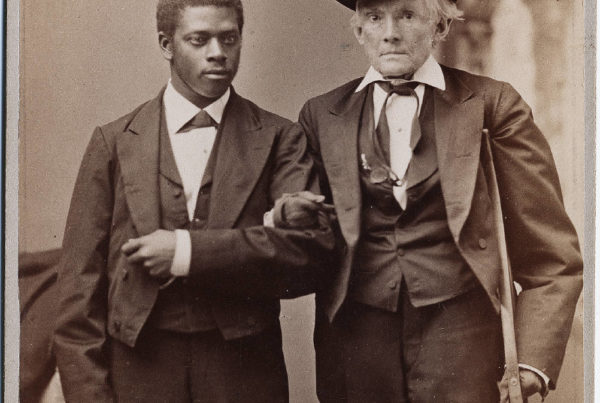The American President began as Cincinnatus, a patriot called to the temporary service of his country (a republican confederation). The President ends as Caesar, a despot of almost unlimited power, presiding over a global empire. Like the Caesars, in some quarters the President is even worshiped as a god. Cincinnatus was called because of his proven ability and patriotism. Caesar achieves power by fraud, bribery, convenient wars, and manipulation of the mob. As with Rome, candidates for the American emperor are sometimes selected by heredity, from the decayed descendants of powerful families: Roosevelts, Bushes, Rockefellers, Kennedys, Romneys, Gores.
In order to understand what the American President was meant to be, you have to look at the long period before the American War of Independence. For well over a century the people’s representatives struggled with royal and propriety governors, empowered agents of a centralised power with an agenda of its own. The American Revolution (not very revolutionary) happened when the royal governors fled to the nearest British warship and the people’s representatives in each colony-now-State remained undisputed sovereigns.
It was understood that an executive power was necessary—a magistrate to see that the laws were enforced and the safety of the State was guarded. Unlike the royal governors, the chief magistrates created by the new constitutions were beholden to their legislatures. In most cases they were chosen by the legislature and served short terms, often only a year. They had no veto power and very little appointive power. Pennsylvania even had a three-man executive. They were not even expected to be Cincinnatus except in emergencies. (Like Governor John Rutledge of South Carolina who carried out his duties to his occupied State from horseback.) Executive power, clearly, was regarded as a necessary evil that had to be hemmed in.
The Presidential office described in the Constitution of 1787 was in many ways an anomaly in history and a departure from settled understanding. It carried great potential for abuse, all of which has been realised. There were many, Federalists, who feared the people and who wanted a powerful executive to lend force and dignity to the new general government. Others accepted as necessity that there must be a head of state to deal with European monarchies; and agreed that if the chief executive were to enforce the laws he had a reasonable right to choose his officers.
But note that in appointments and foreign relations the President was to work closely with the Senators, representatives of the States. It was long not accepted that he had even the right to remove officers who had been approved by the Senate. Until Andrew Jackson, no President thought he had the right to veto a bill just because he did not like it. He had to believe it was unconstitutional. We now live in a world in which many people think of the President as “commander-in-chief” of the government or even of all of us. But the Constitution meant only that he was to be the civilian chief operating officer of the armed forces. The organisation and rules of the armed forces were to be created by Congress; and, in fear of an executive misuse of the military, so familiar to the classically educated Founders who were also living in the age of Bonaparte, appropriations for the armed forces could never be made for more than two years.
The imperial presidency is a recent development. Andrew Jackson, through his popularity and choleric temper, slightly expanded the profile of the executive office. Lincoln, of course, usurped extra-constitutional authority with gay abandon. But it is interesting that most of his abuses of office did not become immediate precedents. When Grant left office in 1877 things returned to something resembling normal. Lincoln was never worshiped as a god while he was president—only afterward. Theodore Roosevelt made the President into a public celebrity as well as a chief magistrate. His cousin Franklin was adored by millions as a kind of father and protector. It was perhaps not until Kennedy that the President was actually worshiped by servile people unfit for free government. And even there the Kennedy adulation was to a considerable extent a trumped-up creation of the fawning media and was not nearly as widespread as they would have us believe. It was Bush Minor who was our first emperor, able to do almost anything with only the merest murmurs of dissent from the Congress or the public.
For some this is a good thing. (Of course, they will scribble away about the dangers of the “imperial presidency”—when the other party is in power.) As our Founders knew, there are always many who seek safety and profit by flattering and clinging to the coattails of Power. One fears that too much of the populace today cannot distinguish Cincinnatus from the horse he rode in on, much less from Caesar.
The destruction of state rights and centralisation of power unchecked in the federal government has contributed to the creation of the imperial presidency. Even so, the office could not have developed as it has without the compliance of Congress. The Founders did not imagine that the Congress would be so faithless in its own duty that it would abet presidential usurpation. Nor was it foreseen that the President would become a party leader with an agenda to force through for the satisfaction of his supporters. And, of course, the complications of world wars, real and imagined, have played a large role. Beyond all this, there seems to be a sick spirit of Leader worship across the land.
Could the President ever again become what he was intended to be—a person of recognised ability and integrity who is charged temporarily with seeing that the laws are faithfully executed and necessary relations with other governments are carried on—and nothing else?
SOURCE: A slightly different version appeared in Chronicles Magazine.







